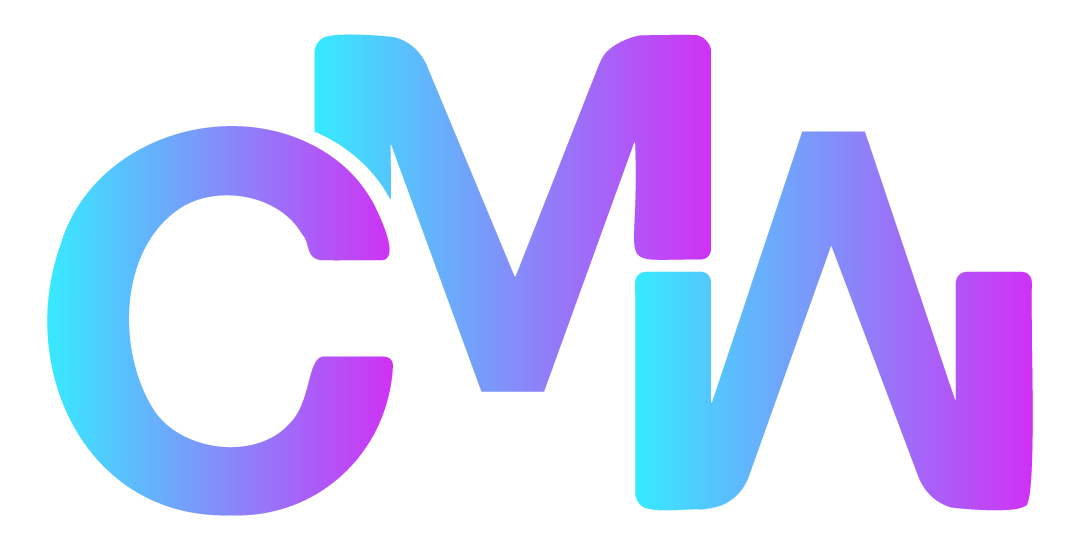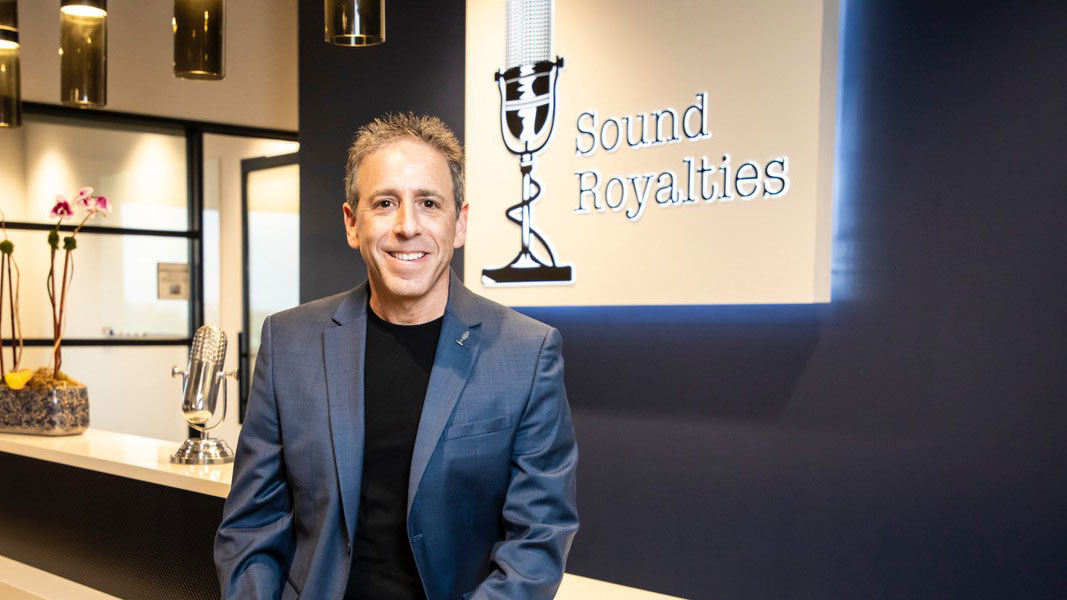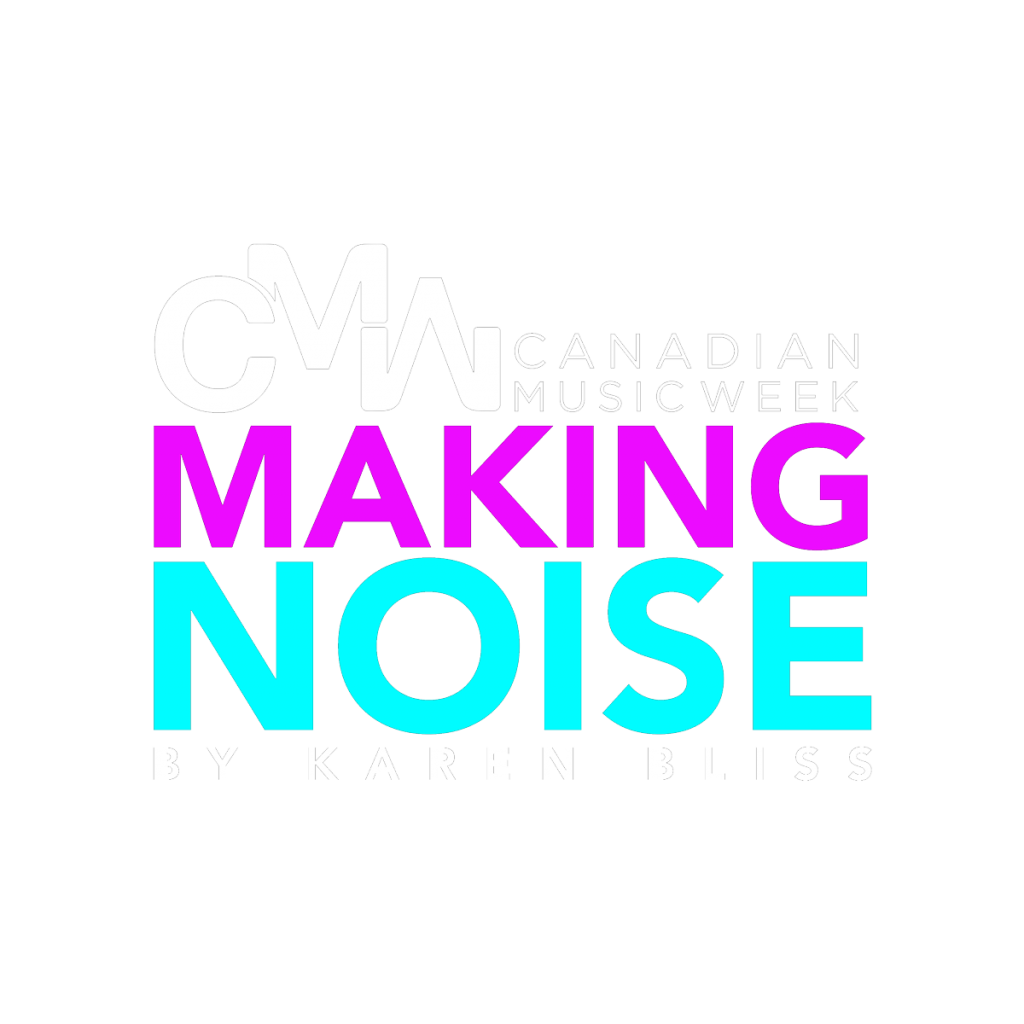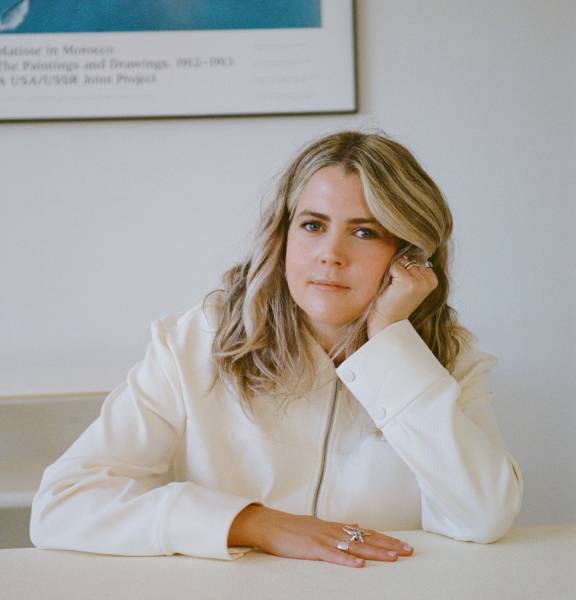BY KAREN BLISS
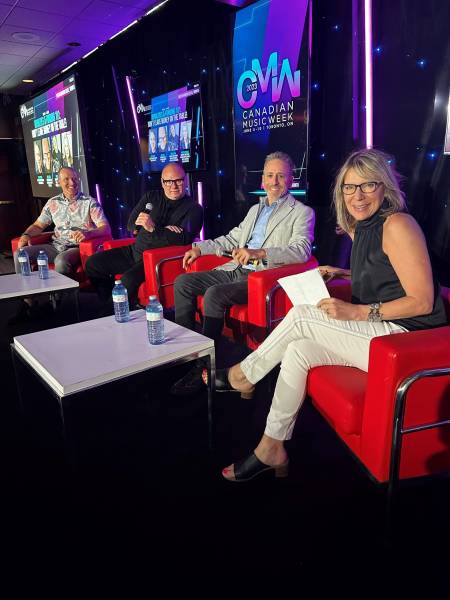
If you search Sound Royalties, it pops up with this tagline: Don’t Sell Your Music Royalties & Copyrights. That goes a long way — in a short way — to explain what the Florida-based finance firm, founded in 2014, offers artists, songwriters, producers and other music creatives. If you earn more than $5000 (USD) a year from music royalties, Sound Royalties offers advances of $3000 to more than $10 million.
The web site has a section of testimonials from such names as Wyclef Jean, Pitbull, DJ Khaled, Rich Robinson of the Black Crowes, Lil Wayne, and many others. There’s an “apply now” button, a phone number and information form. They make it very easy to find out more. But Making Noise went a step further and asked CEO and founder Alex Heiche to explain our layman’s questions.
What was the need you identified when you first had the idea for Sound Royalties?
I’d made a decision before that to come to the music industry. I had a passion for music and there were reasons I wanted to be part of the music industry. I visited Nashville and all the entertainment banks and asked them, ‘Who are you serving? What do you turn away? Who isn’t being served? And when they aren’t being served, where do they go?’ And I quickly saw a huge void for financing for creatives without trying to buy the copyright. Frankly, back then, they were telling me that 85% of the people that came through their door were turned away. And, those people didn’t have options or they had more of a pawn shop type model, sell your copyrights to people that would give them usurious loans.
An artist having success now can still be broke because royalties come in later. Those are the people getting turned away by banks?
Yeah, it’s that, and, also, even the successful ones. It used to be they would jump from album release to album release, and the tour was the loss leader to promote the album. Then, with the piracy, it was the tours where they made the money, but they were jumping from tour to tour, and there was a spike in their income. So their income has always been up down, up down, up down. It’s the ebbs and flows that make it challenging for them to focus on their creative works and their talents, and the business side can really make it hard to actually have a life. Then, when it went to streaming, you hear repeatedly, ‘Well, I can’t make money from streaming.’ Well, you can, it’s just changed.
But all those things make it difficult for creatives to finance, fund and keep working as professional musicians ,where they’re making all their money from music. There weren’t options out there. So the void was — and we pioneered it — the opportunity for creatives to receive financing without giving up their copyrights, without selling the copyrights or risking them if there’s a default. And not give up a 100% of their income stream because It’s one thing to trade your paycheck for money and financing up front, but then if you have no paycheck, it’d be tough to make it to the next one. So this enabled them to keep an income stream flowing, not give up their copyrights and receive fair, transparent financing.
You are not taking a piece of the publishing, but ultimately you are taking a percentage?
No, it’s a fixed dollar amount for fixed period of time of the royalty stream. And it’s not just a publishing; it’s the sound recording; it’s the tour income. So we’ll work with specific streams of income. If they come to us with their publishing and say, ‘Hey, look, I collect this much from my PRO or my publisher or administrator,’ we’ll look at it and say, ‘You may be collecting all this money, but do you need $8.50? Great. How about if we take $2 a year for the next five years? That’s $10.’ Each year, anything that comes in over $2 is yours, which could be a very small fraction of their total income.
So they could see a lot of overflow income. If more than that comes in, we’re not paying ourselves early, and at the end of five years we’re out. And, if by chance, 10 [dollars] doesn’t come in, we take the risk; not you. There’s no late fees, no penalties. You’re not risking losing the copyright. We’re not going to charge you more than $10. You’re protected. That’s the real difference, that there’s funding out there that’s not a 100% recoupment, that’s fair financing. You know what it costs when you get into it and you know what it’s going to cost as a whole.
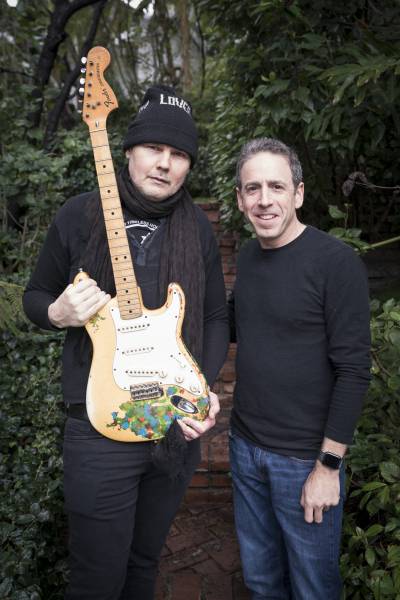
What level of songwriter, of artist, can benefit from this?
You can obviously see from our websites that Grammy-nominated global-winning superstars, DJ Khaled, Pitbull are on there, but we go down as small as someone earning $5000 a year in royalties. So you’re talking about 400 something dollars a month in a specific royalty stream. We can still work with them.
What’s the benefit to a global superstar that’s making a lot of money?
That’s the thing that’s really important for people to understand. This is traditional financing, meaning if you’re going to buy a house, you’re going to buy a car, you’re going to fund a project on your own, so you could retain ownership, are you going to really pay cash for everything? At all levels, where you’re buying a $200,000 house or a $20 million house, people finance. They leverage because the opportunity cost of using all of their cash to buy something — and they may not have all that cash liquid; it may be in investments and other things — they can now access it at fair at a fair cost to them. That’s why they use it. It’s an opportunity to get financing that doesn’t require personal guarantees, that doesn’t require them to risk their copyrights, that doesn’t require personal financial statements and tax returns and all those types of things, yet is still comparable to other alternatives.
SOCAN and other PROs [performing rights organizations] give advances. I imagine major labels do as well. Why wouldn’t revenue-generating artists just go to those sources?
Plenty of people go to their publisher or label when they’re signing a deal for an advance, but they’re focused on the advance, rather than all the great things the label or publisher can do for them and the deal they’re getting. This [Sound Royalties] enables them to focus on that deal. Now, let’s say they’re in a deal — and it’s important to note that whether someone’s signed or unsigned, working with a major or a label or a publisher or independent, we can often still work with them and help them even if they’re unrecouped. But the option of going back to that label or publisher or that PRO, and let’s use the PRO example. If the PRO gives you an advance, they usually go out one to two years and they do a 100% recoupment. Most advances are tied around giving up some sort of percentage. You’re not getting as good a percentage on your royalty flow-through, or it is tied around commitments to stay or other things. We go out five or six years. So you can stretch it out further, get an income stream, and with those traditional advances, you’re not typically seeing any money coming in and they’re shorter.
Let’s take two scenarios. When you have a meeting with an artist that’s not as active now but had a couple of hits back in the day which still get airplay, and hits that $5000 a year mark, what are their main concerns, the points that come up time and time again that you have to explain?
Their main concern is understanding that this isn’t competing with their publisher, PRO, label or distributor. We work in conjunction with. We’re not replacing their business manager, publisher, PRO, label, administrator, any of that. It’s just the financing. That’s typically one of the first concerns. And so they can stay with the team that they’ve chosen. And then, secondly, that we’re not going to take a 100% recoupment, that they can get some money in and stretch it out so that they can keep an income stream going. So they’re not jumping from advance to advance, instead they’re getting financing in an income stream.
And if you’re talking with an A-list artist who has sold millions and headlines arenas, what are their concerns?
Their concerns are around — and it’s usually the business manager and attorneys — what are the commitments that the individual’s making now and on an ongoing basis? And then, of course, what is the cost?
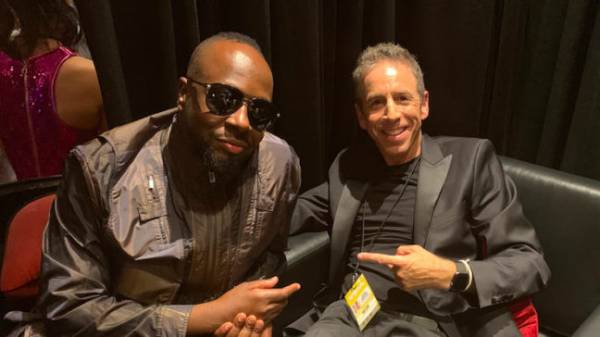
What’s the process? If someone reads this and they’re like, ‘Well, that’s cool. I want to investigate this.’ What comes next?
The process is pretty straightforward, but it’s built around being very transparent. If you go to soundroyalties.com, you can fill out a ‘send me more information.’ And from there, they can talk to a real live person. Our headquarters are in West Palm Beach, Florida, and we pride ourselves that everybody, no matter how big or small, can pick up the phone and they will talk to someone to make sure they fully understand what they’re trying to accomplish, and then we can try to help them find the best way to do that. And then, when they make a selection of how they want to approach it, that they know that they can always come back for more. It’s not a one and done, depending on how the royalties perform and things like that, and that they have someone that they can call for questions.
Do they to submit their financials?
No, they would submit not financials, but they would submit royalty statements or the streams that we’re looking to use.
What assurances are there that this information won’t end up on TMZ or Instagram or Facebook?
100%. We work with thousands of creatives and we take their privacy of utmost concern. That’s why when you look at the names that talk about us, we don’t say anything to the public. Everything’s held in strictest confidence, unless they say it, and the only things we’ll say is what they say.
So if you look at Earl Bud Lee, who [co-wrote] ‘Friends in Low Places,’ a famous song by Garth Brooks, and you say, ‘Tell me what Earl has to say,’ I’ll say that covid shutdown was a huge shift for his income and we were able to step in and help, with no fees and additional costs to him. And he liked that,’ and he said that publicly. Well, that I can say. Am I going to give you other details? No.
And, quite often, some artists and writers and producers will come to us, via their teams, and they’ll ask for an NDA [non-disclosure agreement] and we have an NDA we can provide. We can mutually sign, or if they have theirs, we’ll review it and work with them on signing theirs. It’s not a problem. Happy to do it.
Last October, you hired Vanessa Thomas in Canada. Were you initially focusing on the U.S. and are now you’re expanding, doing outreach in different countries?
We’ve rapidly grown in many ways. We started off just working with PRO income. We now work with over 140 publishers, PROs, labels, distributors that are sending payments to us and we’re providing advances, servicing their clients and their creatives with financing. It’s grown internationally. We are now funding creatives in 16 countries, and Canada is an important market for us, therefore we took it a step further in Canada, as the logical next step, and we actually have a full-time employee.
It is sometimes difficult to get through the management versus an artist with no management?
Yeah, it’s really the managers and attorneys that haven’t worked with us before. When we started out, it was ‘Never heard of you.’ Then it was, ‘I’ve heard of you, but don’t know what you would do.’ And then t was, ‘It’s just too good to be true. ‘And then one by one, the business managers and the entertainment attorneys and the creatives learned, ‘Wow, it is true and it does work.’ So each time it’s working with them to understand exactly how it works, who we are, what we do, and how wildly successful. We have thousands of creatives in 16 countries that are seeking financing and getting financing through us. It’s just getting them to understand who we are and how it works. They may try to pigeonhole us as something else that is out there, whether it’s selling a piece or whatever it may be, but it is uniquely different. It is creative financing.
Just that it’s all income streams in creative tour financing and the different royalty streams, and that we’re continuing to grow around the world in 16 countries. It’s important, if you’re a creative that’s making a focus on growing your career in the music industry, whether you’re signed or unsigned, it’s a simple phone call or an email to see how we might be able to help you.
